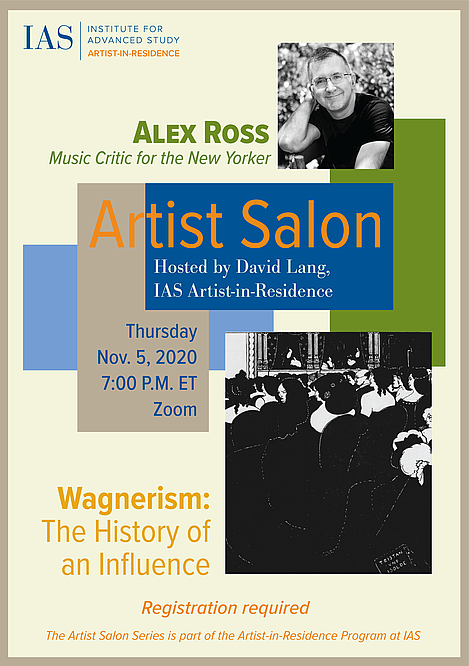Artist Salon Featuring Alex Ross

In the last century, Richard Wagner achieved a position of almost unprecedented importance in the arts, literature, and intellectual life. A vast array of figures including Nietzsche, Baudelaire, Mallarmé, Cézanne, Proust, George Eliot, George Bernard Shaw, Thomas Mann, W. E. B. Du Bois, Theodor Herzl, Willa Cather, Virginia Woolf, James Joyce, T. S. Eliot, Wassily Kandinsky, and Sergei Eisenstein were affected in one way or another by this work. In this talk, Alex Ross will summarize the findings of his new book Wagnerism: Art and Politics in the Shadow of Music, describing both the breadth of the phenomenon and the reasons for its subsequent ideological narrowing, with the result that most people now associate Wagner exclusively with Nazism and Adolf Hitler.
Alex Ross has been the music critic at The New Yorker since 1996. He writes about classical music, covering the field from the Metropolitan Opera to the contemporary avant-garde, and has also contributed essays on literature, history, the visual arts, film, and ecology. His first book, The Rest Is Noise: Listening to the Twentieth Century, a cultural history of music since 1900, won a National Book Critics Circle award and the Guardian First Book Award and was a finalist for the Pulitzer Prize. His second book, the essay collection Listen to This, won an ASCAP Deems Taylor Award. His latest book is Wagnerism: Art and Politics in the Shadow of Music, an account of Wagner’s vast cultural impact. He has received a MacArthur Fellowship, a Guggenheim Fellowship, and an Arts and Letters Award from the American Academy of Arts and Letters.